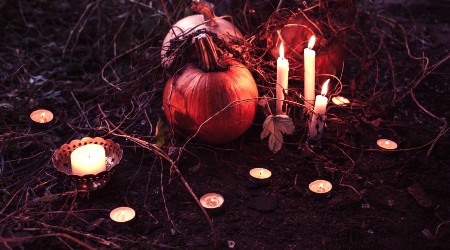 Hi readers, it seems you use Catholic Online a lot; that's great! It's a little awkward to ask, but we need your help. If you have already donated, we sincerely thank you. We're not salespeople, but we depend on donations averaging $14.76 and fewer than 1% of readers give. If you donate just $5.00, the price of your coffee, Catholic Online School could keep thriving. Thank you. Help Now >
Hi readers, it seems you use Catholic Online a lot; that's great! It's a little awkward to ask, but we need your help. If you have already donated, we sincerely thank you. We're not salespeople, but we depend on donations averaging $14.76 and fewer than 1% of readers give. If you donate just $5.00, the price of your coffee, Catholic Online School could keep thriving. Thank you. Help Now >
Avoid the fall -- and the fear
FREE Catholic Classes
St. Louis Post-Dispatch (MCT) - Everybody falls. Down the stairs, on the ice or over your own feet; it happens all the time.
Highlights
McClatchy Newspapers (www.mctdirect.com)
4/22/2009 (1 decade ago)
Published in Health
For most people, falling is no big deal. But older adults face a higher risk for injuries.
One in three adults 65 and older stumble each year, and about one-third of those will suffer moderate to severe injuries, including head trauma and bone fractures.
"Sometimes falls aren't preventable, but we do need to try because the amount of life-changing difference in falls is increasing," said Dr. Christopher Espana, a geriatric specialist at DePaul Health Center in Bridgeton, Mo. "Meaning if you fall once it's fine, but if you keep on falling, when you break something it can spell the difference between an ambulatory individual who all of a sudden needs a hip replacement procedure and six months of physical therapy. Their lifestyle is not the same as before the fall."
Falls are the main factor in about 40 percent of nursing home admissions and the leading cause of death by accidental injury among older adults, according to the Missouri Department of Health and Senior Services.
Winter months see more falls because of icy weather, but slip-ups are a year-round occurrence. In December, Missouri hospitals treated more than 7,000 falling injuries, compared to 5,000 in an average month.
Falls are increasingly seen as a serious public health threat and the subject of more university-based research.
One researcher at St. Louis University studies the fear of falling as a health problem. Some older people can become so worried about falling that they lower their activity level. That can lead to muscle and bone weakness, which not only increases their risk of falling, but their risk of injury.
In the study, associate professor of nursing and lead investigator Helen Lach will offer classes for people to learn about falls and fight their fears. Lach wants to learn if weight-training classes or regular lunch appointments outside the house can help older adults build confidence in their mobility.
"Unfortunately with aging, everything is use it or lose it, and balance is the same thing," Lach said. "You have to practice balance to maintain your balance."
Lach agrees that walking on ice is tricky and slippery, and there's not much help in practicing for that. But many falls happen inside the home and can be prevented with strengthening exercises, and by removing hazards from the home.
Older people are more at risk for falling for several reasons. There may be a medical condition such as arthritis causing pain and weakness. Certain medications can make people feel dizzy and off-balance. Strokes can cause a wobbly gait. The natural loss of vision and hearing as people age can also contribute.
Espana recommends that older adults take calcium and vitamin D supplements to increase their bone strength.
People should remember that falling is not an inevitable part of aging, and the risks can be managed, Lach says.
"It's important to talk to a doctor about falls and not be embarrassed about it," she said. "People need to be appropriately cautious; they shouldn't go out on the ice, but you also want to stay active and engaged and have a good quality of life."
Balance training can significantly help people avoid falls, according to a study published in February in the Journal of Neurophysiology.
Exposing people to a randomly moving platform in a laboratory can translate into dealing with slippery surfaces in real life. The brain can generalize its training from the laboratory to the home and be better prepared to respond to a loss of balance elsewhere, the University of Illinois at Chicago researchers found.
Karl Boehmke, 90, has fallen down the stairs in his Clayton, Mo., home twice in the past 10 years but hasn't broken anything.
"I am not afraid because having done it, I think I'll come through all right," Boehmke said. "I'm not going to tense up to the point I do break something."
He attributes that confidence to a Building Bones exercise class he takes twice a week through OASIS, an educational organization for adults age 50 and older. Students practice balance by alternately standing on one leg, walking heel to toe and turning their heads from side to side with their eyes closed.
"It keeps you alert mentally, physically and, I say, spiritually," said the retired preacher and Air Force chaplain.
Boehmke started taking the class with his wife, LaVerne, 87, because she was at high risk for osteoporosis, a disease that weakens the bones.
The class instructor, physical therapist Suzanne Bruce, said she helps people in their late 50s and into their 90s build their strength, endurance, balance and flexibility _ all helpful in preventing falls.
"How much that carries over when you're in the midst of a fall is debatable," Bruce said. "A fall is a sudden thing. But maybe when you fall, your bones will be a little bit stronger and you won't fracture."
___
TO PREVENT A FALL
_Keep both hands free to help with balance.
_Wear shoes with rubber soles to improve traction.
_Take smaller steps to maintain the correct center of balance.
If a fall can't be avoided
_Toss anything you're carrying.
_Try to fall forward and roll into the fall.
_Relax muscles as much as possible.
Source: Missouri Department of Health and Senior Services
___
© 2009, St. Louis Post-Dispatch.
Join the Movement
When you sign up below, you don't just join an email list - you're joining an entire movement for Free world class Catholic education.
-

-
Mysteries of the Rosary
-
St. Faustina Kowalska
-
Litany of the Blessed Virgin Mary
-
Saint of the Day for Wednesday, Oct 4th, 2023
-
Popular Saints
-
St. Francis of Assisi
-
Bible
-
Female / Women Saints
-
7 Morning Prayers you need to get your day started with God
-
Litany of the Blessed Virgin Mary
Daily Catholic
 Daily Readings for Saturday, November 02, 2024
Daily Readings for Saturday, November 02, 2024 St. Victorinus of Pettau: Saint of the Day for Saturday, November 02, 2024
St. Victorinus of Pettau: Saint of the Day for Saturday, November 02, 2024 Daily Prayer For The Holy Souls: Prayer of the Day for Saturday, November 02, 2024
Daily Prayer For The Holy Souls: Prayer of the Day for Saturday, November 02, 2024- Daily Readings for Friday, November 01, 2024
- St. Valentine Berrio-Ochoa: Saint of the Day for Friday, November 01, 2024
- Litany of the Saints: Prayer of the Day for Friday, November 01, 2024
![]()
Copyright 2024 Catholic Online. All materials contained on this site, whether written, audible or visual are the exclusive property of Catholic Online and are protected under U.S. and International copyright laws, © Copyright 2024 Catholic Online. Any unauthorized use, without prior written consent of Catholic Online is strictly forbidden and prohibited.
Catholic Online is a Project of Your Catholic Voice Foundation, a Not-for-Profit Corporation. Your Catholic Voice Foundation has been granted a recognition of tax exemption under Section 501(c)(3) of the Internal Revenue Code. Federal Tax Identification Number: 81-0596847. Your gift is tax-deductible as allowed by law.







 Daily Readings for Saturday, November 02, 2024
Daily Readings for Saturday, November 02, 2024 St. Victorinus of Pettau: Saint of the Day for Saturday, November 02, 2024
St. Victorinus of Pettau: Saint of the Day for Saturday, November 02, 2024 Daily Prayer For The Holy Souls: Prayer of the Day for Saturday, November 02, 2024
Daily Prayer For The Holy Souls: Prayer of the Day for Saturday, November 02, 2024

